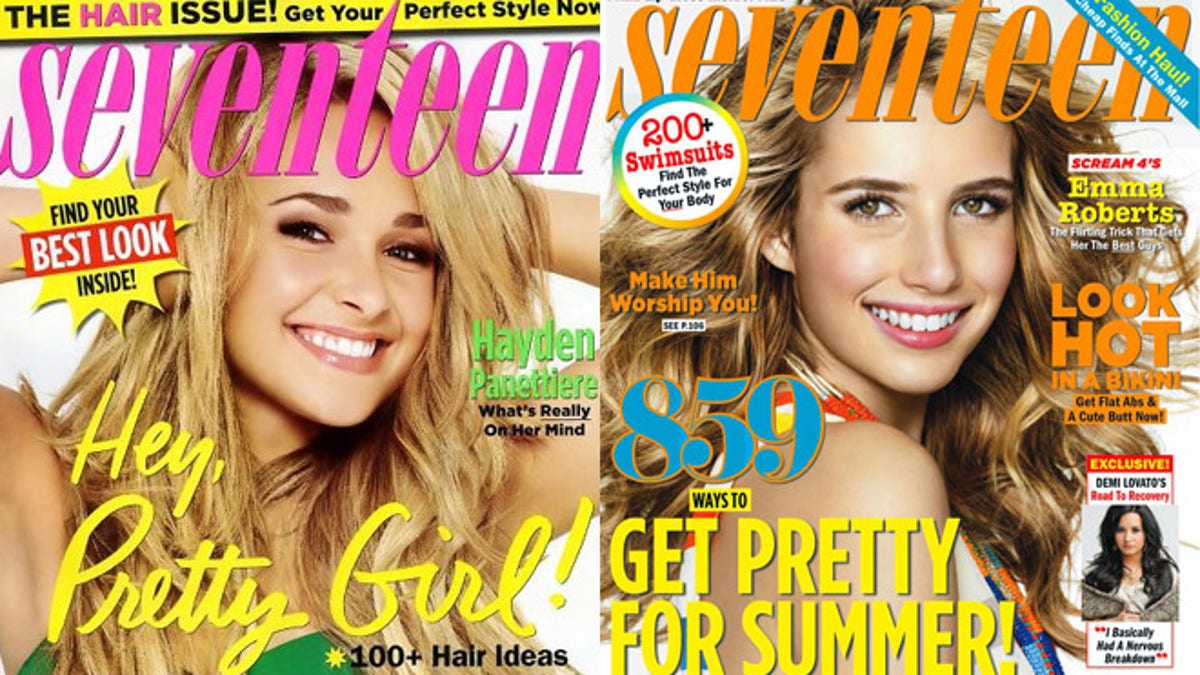
According to thousands of young girls, Seventeen magazine isn't helping the teens it targets. Instead, they say its airbrushing policies and subject matter are doing more harm than good.
Julia Bluhm, who turned 14 last month, launched a petition on Change.org asking the monthly magazine to commit to printing one totally unaltered photo spread per month. The petition has attracted almost 60,000 signatures.
After being overwhelmed by the number of fellow high-schoolers in her ballet class lamenting their “fat days” and the seemingly impossible quest to be “pretty,” Bluhm realized that the images she saw in the iconic monthly magazine did not represent real adolescent females, and contributed to unattainable ideals.
[pullquote]
“Here’s what lots of girls don’t know. Those ‘pretty women’ that we see in magazines are fake. They are often Photoshopped, air-brushed, edited to look thinner, and to appear like they have perfect skin. A girl you see in a magazine probably looks a lot different in real life,” Bluhm said. “For the sake of all the struggling girls all over America, who read Seventeen and think these fake images are what they should be, I’m stepping up. I know how hurtful these photo shopped images can be.”
Last week, Bluhm hand-delivered the petition to Seventeen’s editor-in-chief, Ann Shoket, and held a mock photo shoot outside the magazine's New York City headquarters, in which she urged girls love their bodies “just the way they are.”
Shoket then met with Bluhm and her mother, and invited the young activist to work with the editorial team on the forthcoming issue.
Seventeen did not respond to Fox411.com's request for further comment, but in a statement a rep said the magazine was “proud of Julia for being so passionate about an issue – it’s exactly the kind of attitude we encourage in our readers,” claiming “there is no other magazine that highlights such a diversity of size, shape, skin tone and ethnicity.”
However, the Hearst-published magazine has yet to accede to Bluhm's demands. And even if it did, some wonder why tween and teen-orientated magazines are airbrushed at all.
“I have a daughter who will not be allowed to read magazines like 17 unless they portray real girls as they are,” one woman commented on the petition, while another questioned: “Why only one spread a month? What is wrong with reality 24/7?”
Human behavior expert Dr. Patrick Wanis says teens naturally struggle with their identity, and that this struggle is made more difficult by airbrushed magazines creating unattainable images.
“They see these and they look in the mirror and that leads to more self-loathing, eating disorders and even suicide,” he continued. “Teen magazines need to be promoting all-natural beauty.”
However, model Jaime Hilfiger argues that a moderate airbrushing to correct minor skin imperfections is acceptable.
“Even ‘unaltered’ photo spreads are still not ‘real’ due to the affects of lighting, positioning and other basic elements that are needed for a photo shoot, so there is still a question of ‘realness’ even if there’s no airbrushing,” she explained. “And while photo spreads with no airbrushing are extreme, I can appreciate the petition because, as we continue to raise questions about body image, etc., it creates a dialogue.”





















